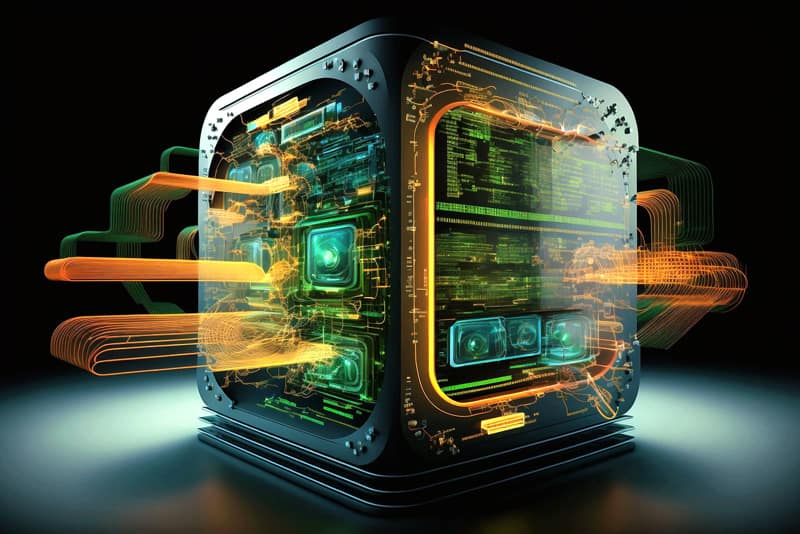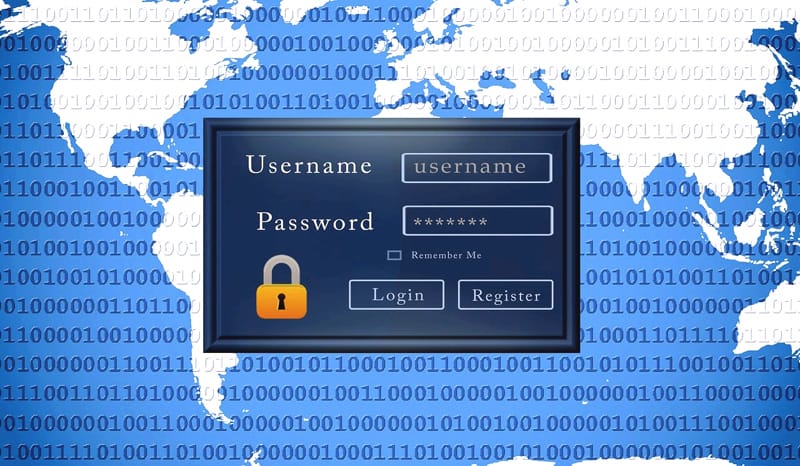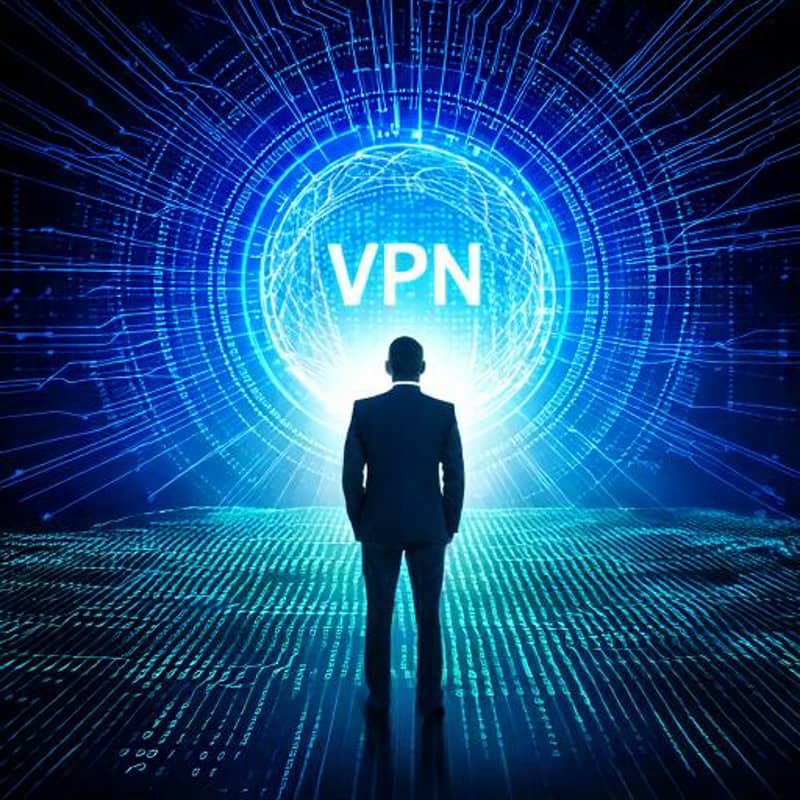If you are concerned about data privacy, you should seriously reconsider storing your personal documents in any free or paid cloud services. Instead, have you considered setting up a NAS server in your home or business?
You might be surprised to hear this but it actually does not require advanced technical skills to setup a basic server by yourself for home or small business use.
Let’s explore then in this post how setting up your own NAS server can enhance data privacy along with a host of other benefits.
Advantages of Using a NAS Server
A Network Attached Storage (NAS) server is basically a personal data storage device that connects to your home/office network. The NAS device can act as a central hub that is always-on and accessible by all your Internet of Things (IoT) devices e.g. smartphones, tablets, laptops, smart sensors, security cameras, etc.
By setting up your own NAS to store your files, it can act like your private cloud, thus giving an extra level of security to your files that contain sensitive data. Furthermore, it will also make it easier to share files among family members in your home or co-workers in your office.
Unlike external hard drives, a NAS operates independently and can even be accessed remotely from anywhere. For instance, if you regularly open work files at home and in your office, a NAS server can be an effective storage solution for your files.
Why Use a NAS Server Instead of the Cloud?
Address Data Privacy Concerns
Regardless of the extensive privacy policies published by organizations that provide cloud services (Google Drive, iCloud, Dropbox, etc), you are storing your data on third-party servers.
This could mean any of the employees at the organization may have access to your files, whether by legal or illegal means. Cloud providers may also scan or analyze your data for marketing or other reasons deemed as legal. Furthermore, you have no control whatsoever over where your data is physically stored. Bear in mind too that data that are stored on third-party servers will also always carry a degree of hacking risk.
With the above pitfalls in mind, you’d realize that running your own NAS server offers much more secure data storage. Just for starters, you get to authorize who gets access to your server. You also get full control over how your data is stored and how many backup copies should be made.
NAS Server Can Reduce Costs
Most cloud storage providers charge upfront fees, where as setting up your own NAS server is a one-time investment. Thus, in the long run, maintaining your own NAS server is more cost effective.
You can easily swap the hard disks to upgrade your storage. For cloud service providers however, they would most certainly charge you extra fees when you need more space.
NAS Server is Independent of the Internet
You must have a stable and fast Internet connection in order to access external cloud services. You’d surely sometimes experienced slow uploads or downloads from cloud services. This could stem from your Internet connection or a busy server on the side of the cloud provider.
With your own NAS server, you are in full control as it operates within your local network. This means you do not actually need an active Internet connection unless you are accessing the files from a remote location.
Gain Practical Tech Skills
By running your own NAS server, you will learn essential knowledge that will help you to be more tech-savvy. Any new found tech knowledge or skills can advance your career and help you better navigate your digital life.
Your new tech skills will also help you run your own web server. For example, you can install a LAMP server which you can use to host your personal or business WordPress websites.
General Steps of Installing a NAS Server
You will be happy to know that many consumer-friendly NAS devices come with easy setup instructions. The process typically involves:
- Choosing a NAS server:
NAS devices vary in prices and they are designed to meet different needs. So, you should spend some time to do a bit of research. - Installing hard drives:
Many NAS enclosures allows you to insert traditional HDD as well as SSD. You can also buy NAS servers that are prepopulated with hard disks. The latter option may not allow you to upgrade though when you need more storage space. For better performance and durability, you can also choose to use NAS-grade hard drives. - Connect the NAS server to your home network:
For NAS servers with built-in hard disks, you just need to plug it into your router with a Ethernet cable. NAS enclosures that allow you to insert your own disks are pretty easy to setup too. Furthermore, they are more popular and also usually cheaper. By the way, for better data security and Wi-Fi boost performance, you should make sure your router supports the latest Wi-Fi networking standards. - Setting up your NAS server:
Like a laptop or desktop computer, NAS servers have their own operating system in them. Within the system, you should find built-in tools catered for auto backups, email, database or virtual private network (VPN) server. Many NAS servers also support BitTorrent, CMS or CRM hosting as well as operate as a web development server.
Tech Tip: Pay heed to your data privacy.
A lot of what you do online is tracked! There is no way to completely block or avoid all Internet trackers, but you can at least use a Virtual Private Network (VPN). Use my affiliate link below to get an offer and I may get a commission if you make an online purchase at Namecheap’s website.
Work from home with a secured connection with Namecheap FastVPN.

Setup a NAS Server For Better Data Privacy
How a NAS Server Enhances Smart Home
A NAS server can significantly improve your smart home setup by providing a secure, local storage solution for IoT devices. For instance, a private NAS would appeal to smart home owners who are concerned about storing data on external cloud services.
For example, if your home security includes many security cameras constantly recording around your house, you should think about whether it is really the best idea to store personal video footage on third-party servers.
Centralized Storage for Smart Cameras & IoT Devices
Most smart security cameras store footage on the cloud and they charge a fee for it. At the end of the day, this can be expensive and slow.
On the other hand, some NAS devices even come with built-in Surveillance Station software, which allows you to manage multiple camera feeds directly.
Setting up your own NAS server thus allows you to:
- Avoid expensive cloud storage fees.
- Security footage is stored locally which means you get instant and fast access.
- Ensure privacy, as no third party can access your recordings.
Better Performance and Management of Smart Devices
IoT devices like smart thermostats, lighting systems and doorbells typically generate logs and other data which are stored in the cloud.
Instead of relying on cloud services, your smart home can run more efficiently without relying on cloud services as your NAS server can:
- Act as a central data hub, organizing and storing logs from all your devices.
- Improve response times by keeping data local.
- Enables automation systems such as Home Assistant to run more smoothly without Internet delays.
Enhances Home Entertainment and Document Storage
You or your family members probably spent hours each day consuming some form of entertainment. Well, here are a few reasons how your own NAS server can improve your home entertainment system:
- Stores your movies, music, and TV shows, large game files and mods which you can stream to respective smart devices without Internet buffering.
- Save family photos, videos, and important documents safely.
- You can utilize RAID in NAS devices for more secure and efficient storage of your files.

Smart Home Automation Free Course
You can learn the essentials of setting up a smart home in this free course by Smart Home Schools in partnership with Alison. You only need to pay if you need the certificate and I may get a commission as an affiliate.
Conclusion
A NAS server is a powerful, private, and cost-effective way to store and manage data. Whether you use multiple IoT devices, security cameras, or a home theater system, your NAS device provides a secure and efficient solution without relying on external cloud providers.
If you want better data privacy or performance from your smart home devices, investing in a NAS device is a smart move.
As we have explored in this post, a NAS server can offer the following advantages:
- Better Privacy – No third-party companies have access to your data.
- Faster Access – No internet delays when accessing files.
- Cost Savings – No recurring cloud storage fees.
- Improved IoT Performance – Faster automation and data processing.
- Superior Home Entertainment – Stream movies, music, and games directly from your NAS.






